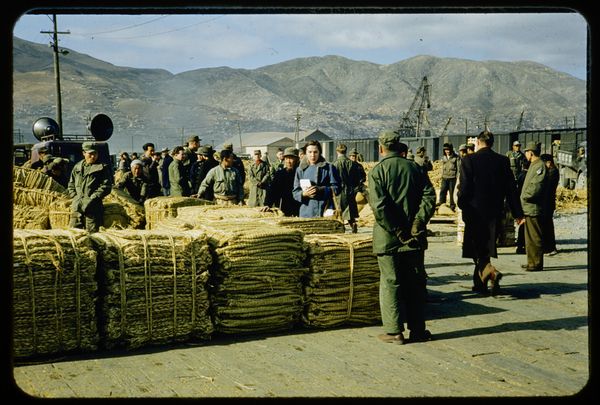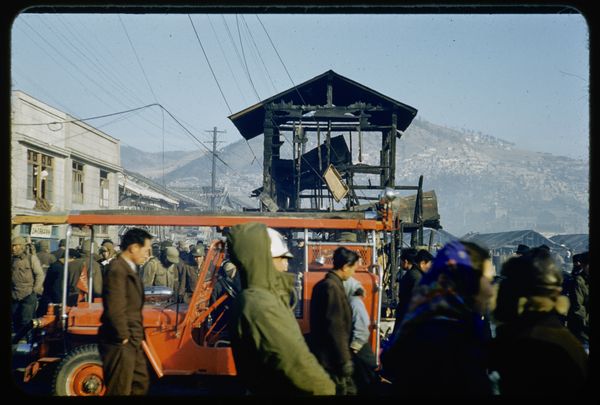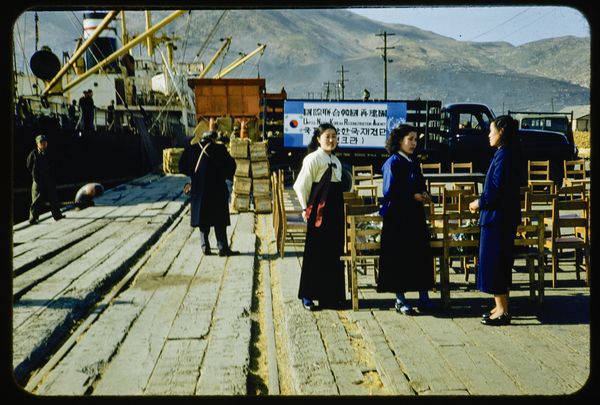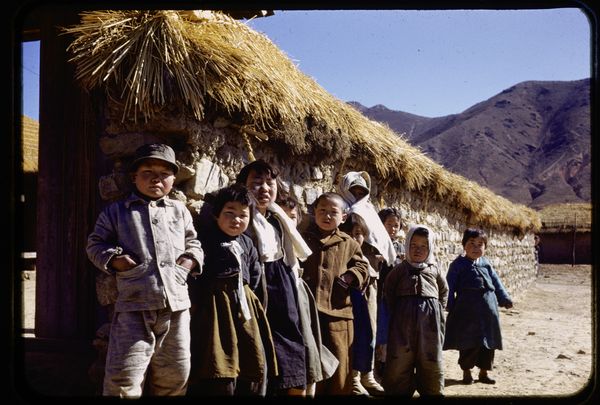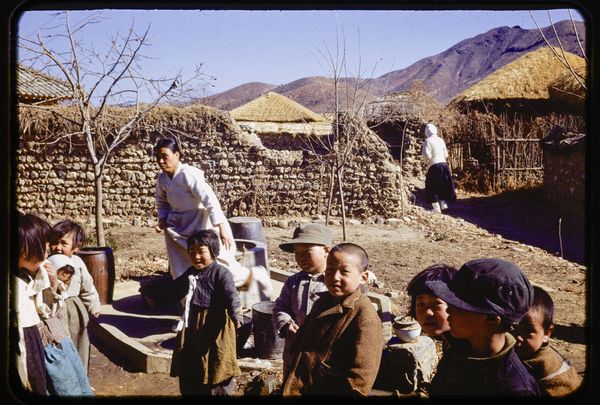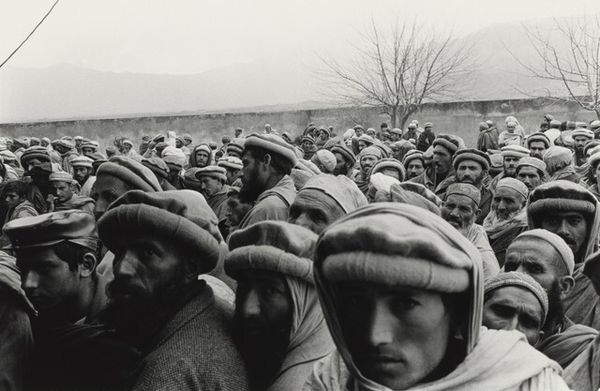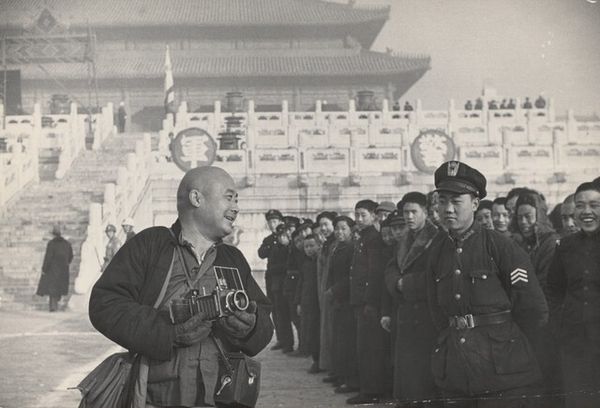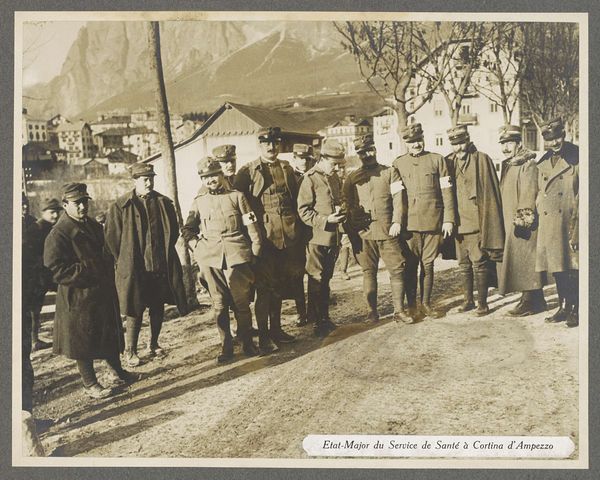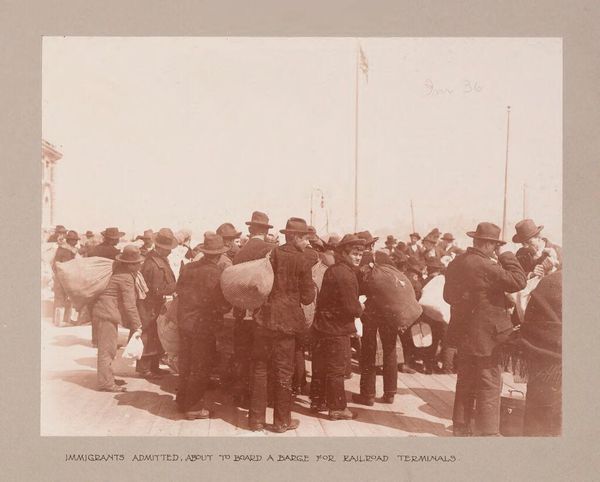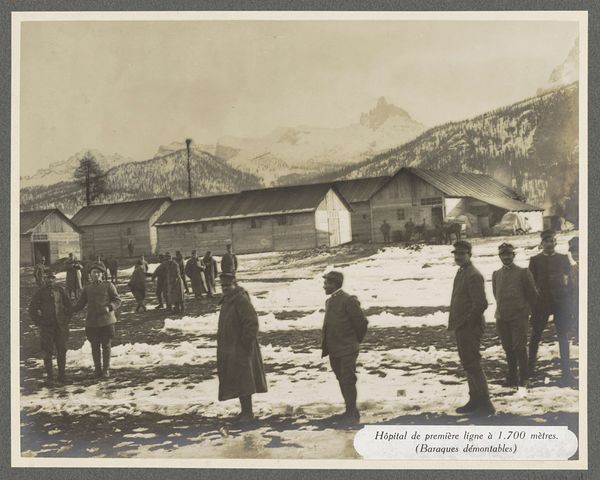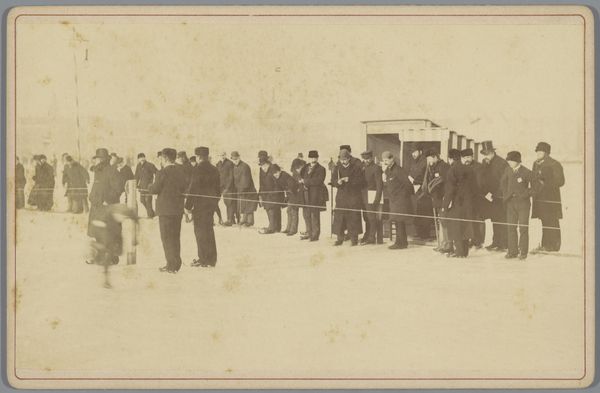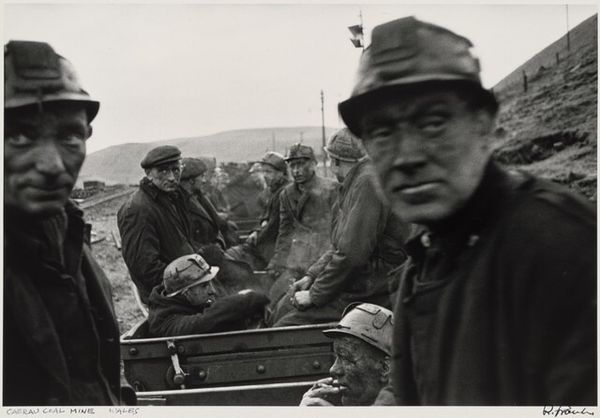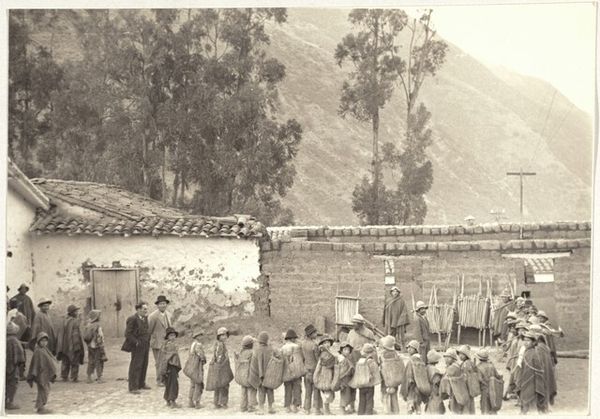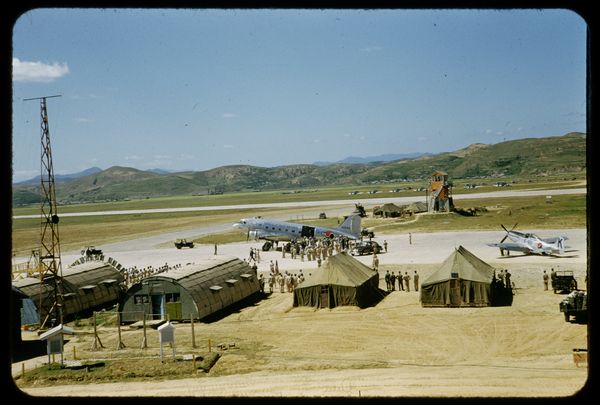
#
real life photography
#
light earthy tone
#
earthy colours
#
populated photography not posed
#
brown and beige
#
earthy tone
#
brown beige
#
green and neutral
#
brown colour palette
#
warm toned green
Dimensions: height 5 cm, width 5 cm
Copyright: Rijks Museum: Open Domain
Editor: We're looking at David Ketel's "Afscheid van de heer Van Fleet, Busan," taken in 1953. It looks like a going-away ceremony. All these figures are assembled outside what looks like some kind of base, with very stark hills behind them. What is striking to you about this photo? Curator: This image really captures a specific moment in Korean-American relations, framed through the lens of post-war reconstruction. The setting itself—Busan, a crucial port city during the Korean War—hints at a logistical and political hub. Notice the industrial landscape looming behind the assembled figures. Does that suggest anything about the image’s broader historical narrative to you? Editor: Well, it feels like a stark contrast. You've got this formal ceremony, these carefully dressed officials, juxtaposed against this backdrop of what looks like raw industrial development almost eating away at the landscape. Curator: Precisely. The 'going away' aspect combined with the visual dominance of industrialization speaks volumes about the shifting power dynamics and the US's role in reshaping post-war Korea. Van Fleet's departure becomes symbolic – it signifies the end of a specific phase and the start of another deeply shaped by external intervention and modernization projects. Think about how photographs like this one were circulated – what public stories were they meant to tell? Editor: So, it’s not just a photograph, it’s a piece of propaganda or at least part of a carefully curated narrative. Curator: Exactly! Images always participate in larger conversations. It gives one a whole other perspective on how to look at an image like this. It really changes the way I perceive this work. Editor: It definitely highlights how much historical context can influence an artwork's meaning, transforming it from a simple image into a reflection of political and social forces.
Comments
No comments
Be the first to comment and join the conversation on the ultimate creative platform.
